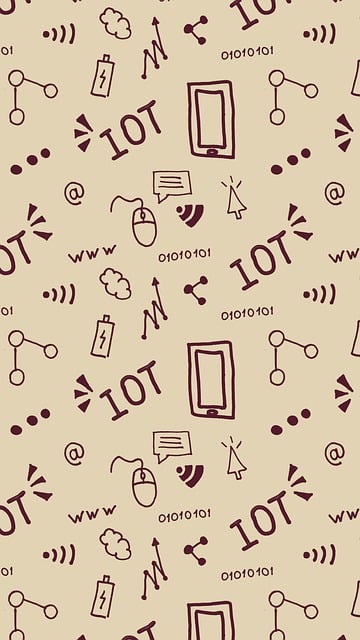Shopify chatbots are revolutionizing online retail by offering 24/7 assistance, personalized interactions, and streamlined operations through advanced natural language processing. Top platforms like Dialogflow, manyChat, MobileMonkey, and Chatfuel cater to diverse needs with unique features. Effective implementation involves strategic placement, personalized responses, seamless integration, and regular updates to the chatbot's knowledge base. Measuring success using KPIs such as response time, conversion rates, and customer satisfaction scores ensures the chatbot enhances the shopping experience and drives sales for Shopify businesses.
“Unleash the power of automation with the best Shopify chatbots! This comprehensive guide explores how these AI assistants can transform your online store. From understanding the fundamentals—uncovering benefits, key features, and their impact on customer engagement—to delving into top-rated platforms like Dialogflow and ManyChat, we’ve got you covered. Learn effective implementation strategies and discover essential KPIs to track success. Boost sales, enhance support, and elevate your Shopify store’s efficiency with the right chatbot.”
- Understanding Shopify Chatbots: Benefits and Key Features
- Top Shopify Chatbot Platforms and Tools to Consider
- Implementing a chatbot: Strategies for Success on Shopify Stores
- Measuring Success: Tracking KPIs for Your Shopify Chatbot
Understanding Shopify Chatbots: Benefits and Key Features

Shopify chatbots are a game-changer for online stores, offering a seamless and personalized customer experience. These virtual assistants provide 24/7 availability, instantly responding to customer queries and providing support. By integrating a chatbot for Shopify, businesses can streamline their operations, reduce response times, and boost customer satisfaction.
Key features include automated product recommendations, order tracking updates, and efficient customer service. They can handle basic inquiries, collect feedback, and even facilitate sales by suggesting relevant products based on user behavior. With advanced natural language processing, these chatbots understand and respond to customer requests naturally, creating a human-like conversation flow. This technology is a powerful tool for enhancing the overall shopping journey and building stronger relationships with customers.
Top Shopify Chatbot Platforms and Tools to Consider

When looking for the best Shopify chatbot, several top platforms and tools stand out due to their advanced features and seamless integration with Shopify stores. These chatbots are designed to enhance customer engagement, automate tasks, and drive sales. Some of the most reputable options include Dialogflow, manyChat, MobileMonkey, and Chatfuel.
Dialogflow, for instance, offers powerful natural language processing capabilities, enabling it to understand complex user queries. manyChat is known for its extensive automation tools and Facebook Messenger integration, while MobileMonkey provides a comprehensive suite of chatbot building features tailored for Shopify. Chatfuel is also a popular choice due to its drag-and-drop interface, making chatbot creation accessible even for non-technical users.
Implementing a chatbot: Strategies for Success on Shopify Stores

Implementing a chatbot on your Shopify store can significantly enhance customer experience and drive sales. The key to success lies in strategic placement and intelligent design. Choose high-traffic areas like your home page, product pages, or checkout process to ensure maximum visibility. A well-crafted welcome message that introduces the chatbot’s capabilities is essential, followed by tailored responses to frequently asked questions (FAQs). Personalization is paramount; address customers by name and offer relevant product recommendations based on their browsing history.
Moreover, integrate the chatbot seamlessly with your store’s existing features. For instance, connect it to your inventory management system for accurate stock updates or enable it to handle simple returns and exchanges. Regularly update the chatbot’s knowledge base with new products, promotions, or changes in store policies to keep conversations engaging and informative. Remember, a successful Shopify chatbot is not just about automation but creating a human-like interaction that feels natural and enhances customer satisfaction.
Measuring Success: Tracking KPIs for Your Shopify Chatbot

Measuring success is a crucial aspect of integrating a Shopify chatbot into your e-commerce strategy. Key Performance Indicators (KPIs) provide valuable insights into the effectiveness of your chatbot, helping you understand customer interactions and optimize their experience. Focus on tracking metrics such as response time, which reflects the efficiency of your chatbot in providing instant support to shoppers. Conversion rates are also essential; monitoring how many visitors become customers through chatbot interactions can reveal its impact on sales.
Additionally, keep an eye on customer satisfaction scores, often measured through feedback forms or ratings. A satisfied customer base is key to any successful business, and a well-performing Shopify chatbot should aim to enhance this metric. By regularly analyzing these KPIs, you can identify areas for improvement and make data-driven decisions to refine your chatbot’s performance, ensuring it becomes an indispensable tool in your Shopify store’s operations.
A well-implemented Shopify chatbot can significantly enhance customer engagement, streamline support, and boost sales. By understanding the benefits, choosing the right platform, and employing effective strategies, you can harness the power of artificial intelligence to create a seamless shopping experience. Remember that success lies in tracking key performance indicators (KPIs) and continuously optimizing your chatbot’s performance to meet your Shopify store’s unique needs. Incorporating a chatbot into your e-commerce strategy is not just a trend; it’s a game-changer for modern retail.
